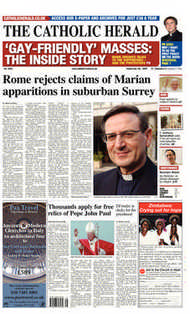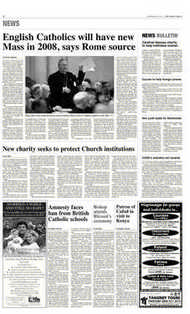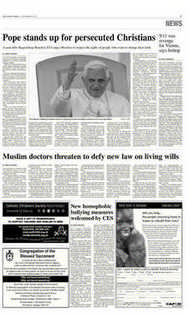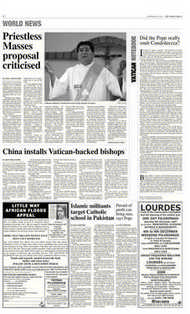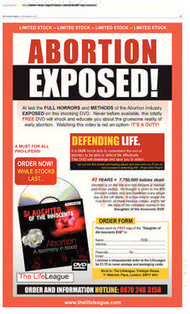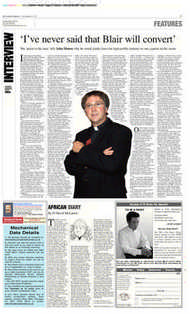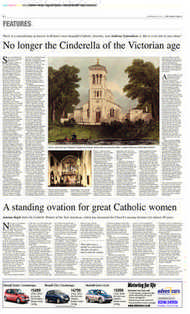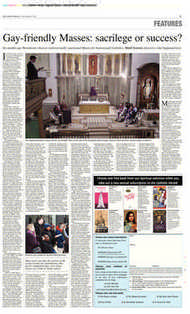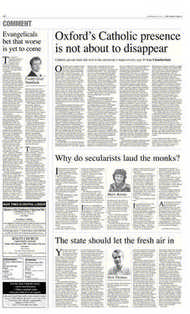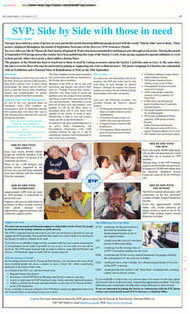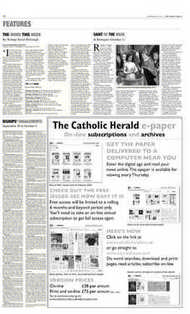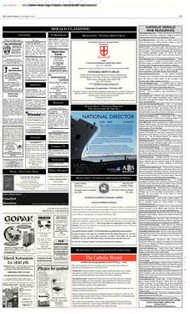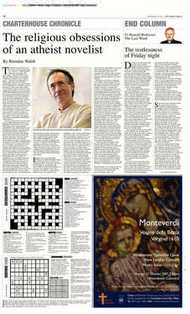Page 7, 28th September 2007
Page 7

Report an error
Noticed an error on this page?If you've noticed an error in this article please click here to report it.
Tags
Share
Related articles
A Bishop Is Murdered – And No One Is Surprised
AFRICAN DIARY
By Fr David McLaurin
he Mass to mark the seventh anniversary of the death of Fr John Kaiser was held in the pro-cathedral in Ngong Town. The diocese has no cathedral yet, thus the parish church of the town stands in for one, as its title suggests. It lies on the far side of a very muddy field, next to the Ngong Stadium, which is also a muddy field, where the ruling party, NARC, was having a rally. The congregation had walked from the neighbouring church at Embulbul, and the Mass was due to start at 10 am, but I knew it would not, and sure enough, I arrived half an hour late but in plenty of time for the few minutes to 11 start. Not concelebrating, I took a place at the back, wedging myself in between the Catholic women, all wearing their smart headscarves bearing the legends “Strong in Faith” and “St Monica Pray for Us”, and the various piles of foodstuffs that were to be brought up at the offertory. There were carrots and pineapples, oranges and papayas, some very large hands of bananas and numerous cabbages, always our most popular staple.
The pro-cathedral is by no means beautiful. The roof is reddish-brown corrugated asbestos, supported by a tangle of rust-red metal pipes. The distant sound of the choir soon distracted me, and the sight of the processional cross being carried in amid a singing and densely packed congregation was truly a fine one. Four bishops were present. Our local ordinary, who is Dutch, his predecessor, who lives in retirement in Kisumu, but is originally from the Argentine, and the Bishop of Lodwar, who is Irish, along with the chief celebrant, Bishop Peter Kairo of Nakuru, who is chairman of the episcopal conference’s commission for justice and peace.
What has changed since the last anniversary Mass has already been reported in this column. We now know officially what we have all known all along: that it was murder and not suicide. The bishop, in his sermon, said that those responsible should come forward and admit their guilt. In this way they could be forgiven, and the money currently being spent on lawyers and legal fees could be given to the poor. He went on to say that Kenya needs a truth and reconciliation commission to find out the truth about all the unexplained deaths of the past. He mentioned specifically that of Dr Robert Ouko, a former government minister, who was murdered in 1990 and whose violent end was also at first described as suicide. That case remains open. The bishop’s brave message was that we cannot make real progress unless we first acknowledge the truth and unless the guilty are held accountable for their actions.
During the bidding prayers the people of Mount Elgon district were remembered; this is the remote part of western Kenya, bordering Uganda, which has suffered from a low intensity civil conflict for the past five or six months. The violence is so bad that all the schools have had to close, and no one seems quite sure who is behind it.
Stepping out of the church I caught sight of a view of the town as I had not seen it before: behind the buildings that line the tarmac road are numerous miserable shanties, and a huge sea of rubbish, a veritable slum. The parish clergy here had told me that their single biggest task was dealing with hungry people. Ah, Kenya!
blog comments powered by Disqus


